Unnati Cultural Village:
Nurturing Heritage, Empowering Communities
UNNATI, a unique initiative by the Chaudhary Foundation, caters to the economic growth, evolution of heritage, and living knowledge systems of Nepal. As the abbreviation suggests, it is the focal point for Upscaling National, Natural, Artistic, and Traditional Industries. UNNATI’s philosophy of revival entails the survival of national heritage through forms of arts, crafts, dance, music, foods, language, and habitat, encompassing the philosophy of life by which civilizations once thrived in culture and traditions. The essence is to bring the lost and found, old and new, back into our everyday lives.
UNNATI is a living ecosystem whose engagement and efforts to harness the tangible and intangible disciplines of artistic industries are growing and evolving with a bottom-up approach in the economic pyramid.
Vision
Values
UNNATI is designed to uphold certain values throughout the life of ongoing projects. These values can be seen consistently through our programs, events, spaces, and experiences to create awareness, sensitivity, and integrity for the project.
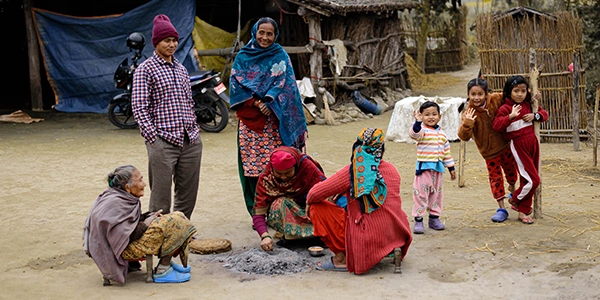
Project, Purpose, People and Power
We are driven by a dynamic project opportunity, continuously evolving, and actively working towards achieving our goals. Our purpose is clear: to foster the growth and empowerment of the communities we engage with. Ultimately, it is the people, our valued stakeholders, who possess the power to bring about lasting change and positive transformations in their lives.
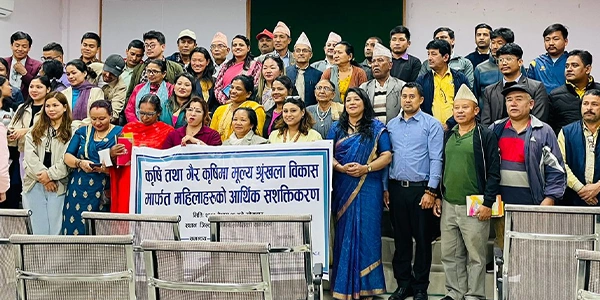
Partnerships = People + Public + Private
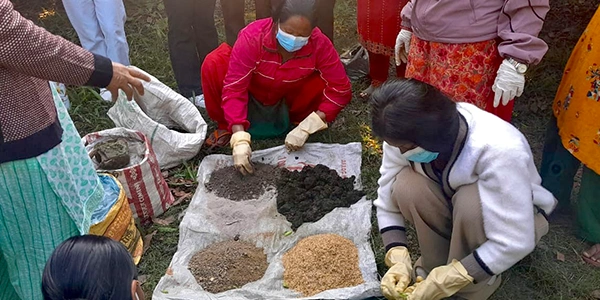
We are environmentally sensitive
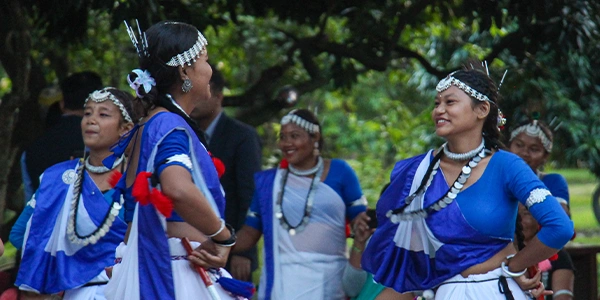
We are socially responsible.
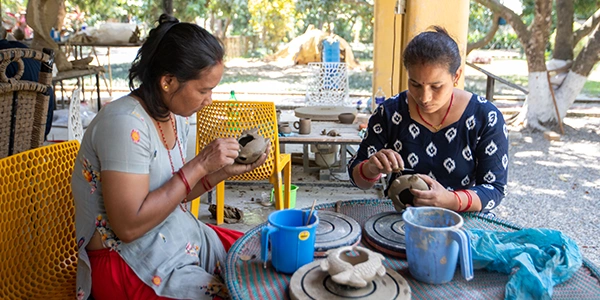
We empower
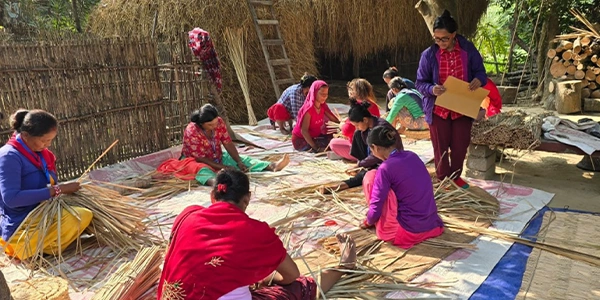
facilitate institutional building at the grassroots
Process
Mapping and Identification
Innovation and Application
Creating Cultural Content
Design-Led Entrepreneurship
Cross-Sectoral Collaborations
Training and Transmission
Branding and Marketing
Knowledge Resources and Archives
Objectives
Message from the Chairman - Binod K. Chaudhary
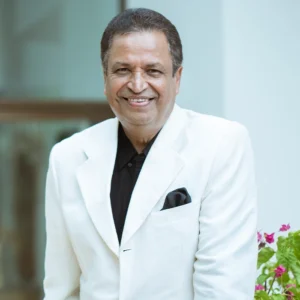 Over the years, UNNATI as a program under the Chaudhary Foundation has tirelessly worked towards promoting and preserving art and culture, recognizing their significance in shaping societies and fostering a sense of identity. Through various initiatives, we have provided platforms for artists to showcase their talents, organized cultural events that celebrate diversity, and supported art education programs to nurture the next generation of creative minds.
Over the years, UNNATI as a program under the Chaudhary Foundation has tirelessly worked towards promoting and preserving art and culture, recognizing their significance in shaping societies and fostering a sense of identity. Through various initiatives, we have provided platforms for artists to showcase their talents, organized cultural events that celebrate diversity, and supported art education programs to nurture the next generation of creative minds.
It gives me great pleasure and satisfaction to lend my support to our community through UNNATI, as a dedicated project to the advancement of art, culture, women empowerment, and sustainability. In addition to our commitment to art and culture, UNNATI has been at the forefront of empowering women and promoting gender equality. We firmly believe that empowering women is not only a moral imperative but also a catalyst for social and economic progress. Through our programs, we have provided skill development training, entrepreneurship opportunities, and access to resources for women, enabling them to become self-reliant and active contributors to their communities and working towards creating a more inclusive and equitable society. Furthermore, We recognize the urgent need to address environmental challenges and promote sustainable practices for the well-being of our planet and future generations. Through our initiatives, we have focused on promoting renewable energy, waste management, and conservation of natural resources. By collaborating with local communities, businesses, and government agencies, we have been able to implement sustainable solutions that have a lasting impact on the environment.
In conclusion, I would like to express my heartfelt gratitude to all our stakeholders, partners, and supporters who have played a pivotal role in making UNNATI’s endeavors successful. This report highlights the unyielding effort of togetherness that we have made significant strides in the fields of art, culture, women empowerment, and sustainability in this span of proceedings. However, our journey is far from over, and we remain committed to creating a better world for all to reach beyond territories. Let us continue to work hand in hand, inspiring positive change and leaving a lasting legacy for generations to come and the community we belong to.
Message from the Executive Director/ Founder – Surabhi Chaudhary
 UNNATI is an organization that focuses on the growth and enrichment of traditional living knowledge systems, fuelling of green economies, women empowerment and environmental sustainability for the people and cultures of Nepal.
UNNATI is an organization that focuses on the growth and enrichment of traditional living knowledge systems, fuelling of green economies, women empowerment and environmental sustainability for the people and cultures of Nepal.
As the abbreviation reflects its core objectives: Upscaling National, Natural, Artistic, and Traditional Industries.
Nepal has been blessed with a diverse landscape ranging from the majestic Himalayas to the forest regions of the Terai, it is a home to the sub-continents rich bio diversity, flora fauna, wildlife, rivers, agriculture, rich ethnic diversities and national heritage. 80% of Nepal’s economic activities rely heavily on cottage industries and rural enterprises. In spite of Nepal’s many gifts and abundance of natural resources it stands as a low developing nation facing many challenges to scale home based industries, domestic produce and low job creation. These challenges have had an adverse effect on her people leading to escalated attrition and crippled social welfare.
To address these challenges, UNNATI rests on five core pillars which is harnessing and upscaling of local enterprises, creating rural entrepreneurship leading to a bottom-up approach in the economic pyramid.
Promotion and Preservation of Nepalese artisanal industries through a high-end crafts platform for retail and exports named Siya.
Enrichment of Nepalese Arts & Culture through artistic expression, research and incubation programs of visual arts, literature, dance, music, theatre, festivals and cuisine. Its goal is to preserve national heritage and foster connections between different cultures and countries in the South Asian region.
Farm to Table, which fosters food security, nutrition and organic farming techniques. UNNATI encourages the consumption of locally sourced produce to support local farmers and promote sustainable agriculture and food processing.
To summarize the above initiatives a unique platform to showcase the best of Nepal through the sights, sounds, experiences of cultural hospitality is Unnati Cultural Village, established in Nawalpur, Nepal in 2021. The space serves as the first cultural center designed to harness and promote various multi-disciplinary artistic practices, cross pollination of dialogue and ideas through residencies, research and cultural inclusion. It offers bespoke hospitality, incorporating local arts, cuisine, architecture and indigenous habitat.
UNNATI brings partner collaborations between creative eco systems, academia, philanthropy, local stakeholders, governments and the private sector where they find synergy, harmony and purpose to work together leading to powerful and long-lasting transformations for the grass roots communities.
Our projects are crafted with awareness, sensitivity, integrity and upholding our core values to uplift and strengthen the areas we are committed toward.
I hope you enjoy reading our body of work and we welcome opportunities for collaboration and partnerships in developing a vibrant network that becomes the engine for growth, sustainable development goals, regional trade, soft policy, and more.

